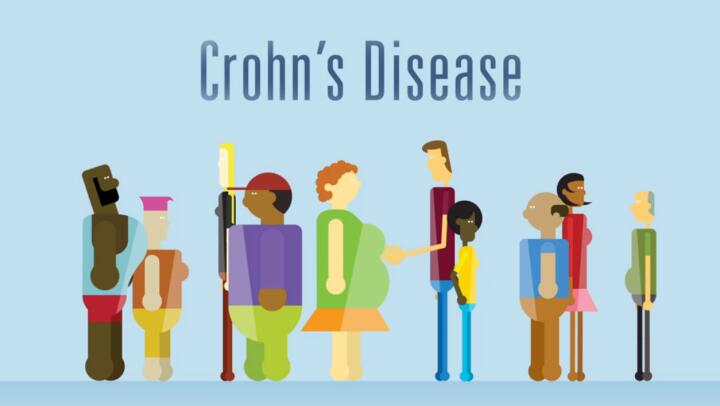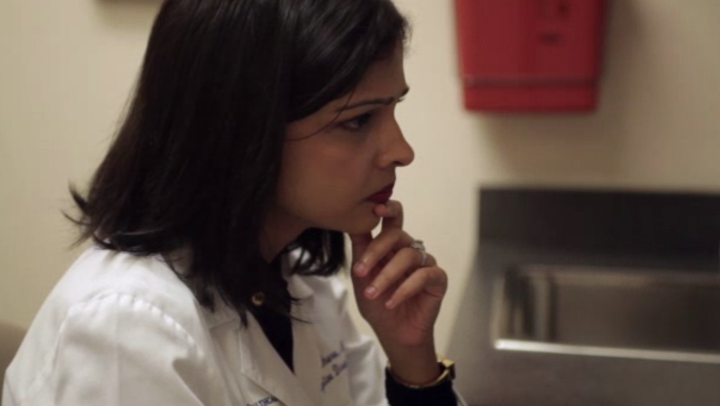What are stomach problems?
Conditions that affect digestion or cause pain or discomfort in the abdomen are often perceived and described as stomach problems, although the stomach may not always be involved. Most stomach problems are related to the digestive tract, although symptoms may also be due to conditions of the body wall, blood vessels, urinary tract, reproductive organs, or organs of the chest.
When pain is present, stomach problems may be due to the organs near the site of the pain, such as the stomach or gallbladder in the upper abdomen, or the appendix in the lower abdomen. Generalized stomach problems may be associated with diet, infection or inflammation. In women, stomach problems may be related to the menstrual cycle or to infection or other conditions of the reproductive organs.
Problems specific to the stomach and upper gastrointestinal tract include belching, heartburn, gastroesophageal reflux disease (GERD), hiatal hernias (weakened area of the diaphragm that allows the stomach to protrude into the chest), gastritis (inflammation of the stomach lining), or peptic ulcers. Symptoms may be brought on by certain foods and may worsen when lying flat. Gas, bloating, constipation and diarrhea, which may arise from the intestines, can also be related to food intake or may be related to intestinal infection or inflammation.
Pain associated with shingles, a reactivation of the chickenpox virus, may be attributed to stomach problems until the characteristic blistering rash becomes apparent. Abdominal trauma, poisoning, heart attack, pneumonia, pleurisy (inflammation of the lining around the lungs), reproductive system conditions, and stones or infections of the urinary tract can also cause symptoms that are perceived as stomach problems.
Stomach problems that are severe or that do not improve within a day or two can be symptoms of serious medical conditions. Seek immediate medical care (call 911) for severe pain that comes on suddenly, an inability to have bowel movements, bloody stool, vomiting blood, abdominal rigidity, breathing difficulties, or pain in the neck, chest, shoulders, or between the shoulders. You should also seek immediate care if you have stomach problems and have cancer or might be pregnant and experience vaginal bleeding or abdominal cramps.
If your stomach problems are persistent or cause you concern, seek prompt medical care.
What causes stomach problems?
Stomach problems often originate in the digestive tract, although they can be due to disorders of the circulatory system, urinary tract, reproductive system, respiratory system, nervous system, or body wall.
Digestive tract causes of stomach problems
Stomach problems may be caused by conditions of the digestive tract including:
Bacterial, parasitic or viral infection of the gastrointestinal tract
Celiac disease (severe sensitivity to gluten from wheat and other grains that causes intestinal damage)
Diverticulitis (inflammation of an abnormal pocket in the colon)
Food intolerance such as lactose intolerance (inability to digest lactose, the sugar in dairy products)
Gallbladder disease or stones
Gastritis (inflammation of the stomach lining)
Inflammatory bowel disease (includes Crohn’s disease, ulcerative colitis)
Irritable bowel syndrome (IBS; digestive discomfort that does not cause intestinal damage or serious disease)
Liver disease, including hepatitis (inflammation of the liver)
Pancreatitis (inflammation of the pancreas)
Ulcers of the stomach or duodenum (first section of the small intestine)
Other causes of stomach problems
Stomach problems can also be caused by conditions involving other body systems including:
Abdominal or hiatal hernia (weakening in the abdominal wall or diaphragm, through which internal organs can pass)
Cancer of an abdominal or pelvic organ
Endometriosis (condition where tissues resembling the uterine lining grow in other areas of the body)
Pelvic inflammatory disease (PID; infection of a woman’s reproductive organs)
Pleurisy (inflammation of the lining around the lungs)
Shingles (painful, blistering rash that results from a reactivation of the varicella-zoster, or chickenpox, virus)
Serious or life-threatening causes of stomach problems
In some cases, stomach problems may be a symptom of a serious or life-threatening condition that should be immediately evaluated in an emergency setting. These include:
Abdominal abscess
Abdominal, pelvic or testicular trauma
Aneurysm of the abdominal aorta (life-threatening bulging and weakening of the wall of the abdominal aorta that can burst and cause severe hemorrhage)
Bowel obstruction or perforation
Chemical or heavy metal poisoning
Colonic volvulus (twisting of the colon) or intussusception (telescoping of the intestines into themselves)
Ectopic pregnancy (life-threatening pregnancy growing outside the uterus)
Intestinal ischemia (loss of blood supply to the intestines leading to death of intestinal tissue)
Myocardial infarction (heart attack)
Peritonitis (infection of the lining that surrounds the abdomen)
Torsion of an ovary or a testicle (twisting of an ovary or spermatic cord)
Questions for diagnosing the cause of stomach problems
To diagnose your condition, your doctor or licensed health care practitioner will ask you several questions related to your stomach problems including:
- How long have you had stomach problems?
- How would you describe your problems?
- Does anything make them go away or get worse?
- Have you had stomach problems like this before?
- Do you have any other symptoms?
- What medications are you taking?
- Is there any possibility you are pregnant?
What are the potential complications of stomach problems?
Because stomach problems can be due to serious diseases, failure to seek treatment can result in serious complications and permanent damage. Once the underlying cause is diagnosed, it is important for you to follow the treatment plan that you and your health care professional design specifically for you to reduce the risk of potential complications including:
- Bowel infarction (severe injury to an area of the bowel due to decreased blood supply)
- Infertility
- Internal hemorrhage
- Intestinal obstruction and rupture of the intestinal wall
- Organ failure or dysfunction
- Ruptured appendix
- Spread of cancer
- Spread of infection
What other symptoms might occur with stomach problems?
Stomach problems may accompany other symptoms, which vary depending on the underlying disease, disorder or condition. Stomach problems are often related to the digestive system, but may also be related to other body systems.
Digestive tract symptoms that may occur along with stomach problems
Stomach problems may accompany other symptoms affecting the digestive system including:
- Abdominal pain or cramping
- Abdominal swelling, distension or bloating
- Belching
- Bloody stool (blood may be red, black, or tarry in texture)
- Changes in bowel movements
- Constipation
- Cramping
- Diarrhea
- Gas
- Indigestion
- Nausea with or without vomiting
- Urgent need to pass stool
Other symptoms that may occur along with stomach problems
Stomach problems may accompany symptoms related to other body systems including:
- Cough
- Enlarged liver and glands such as the spleen and lymph nodes
- Fever
- Pain during sexual intercourse
- Pain or burning with urination
- Pain, numbness or tingling
- Palpable mass in the abdomen or pelvic area
- Rash
- Unexplained weight loss
Serious symptoms that might indicate a life-threatening condition
In some cases, stomach problems may be a symptom of a life-threatening condition that should be immediately evaluated in an emergency setting. Seek immediate medical care (call 911) if you, or someone you are with, have any of these life-threatening symptoms including:
Bleeding while pregnant
Change in level of consciousness or alertness such as passing out or unresponsiveness
Chest pain, chest tightness, chest pressure, or palpitations
High fever (higher than 101 degrees Fahrenheit)
Inability to have bowel movements, especially if accompanied by vomiting
Rapid heart rate (tachycardia)
Respiratory or breathing problems such as shortness of breath, difficulty breathing, labored breathing, wheezing, not breathing, or choking
Rigidity of the abdomen
Severe abdominal pain or sharp abdominal pain that comes on suddenly
Trauma to the abdomen, pelvis or testicles
Vomiting blood, rectal bleeding, or bloody stool



























